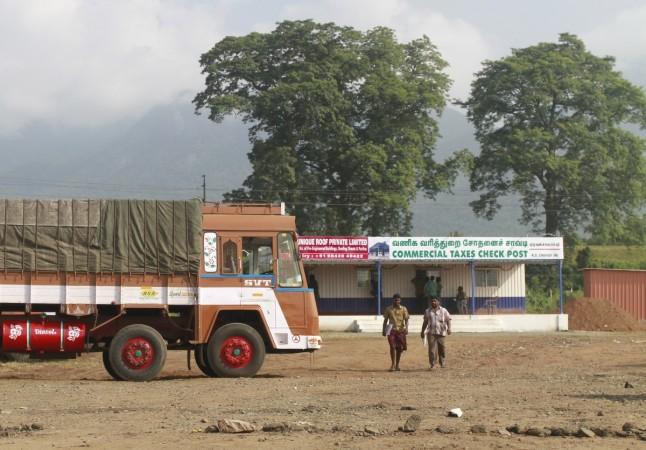
E-way bill or electronic way bill will be made compulsory across India from April 1. Starting Sunday, when moving goods worth more than Rs 50,000 between two states or even within a state, the transporter needs to carry an e-way bill under the Goods and Services Tax (GST) regime. The e-way bill system is considered as an effective tool for tracking the movement of goods and check tax evasion.
"The move onto the e-way bill is set to boost the organized segment of the long-distance logistics industry, and in turn, contribute towards the rapid growth of the Indian economy as a whole," Anjani Mandal, CEO and co-founder of Fortigo told International Business Times India.
"For the organized players, the benefit would be the further reduction in delivery time with long-distance transportation along with the rooting out of-of service providers who transport goods without paying the due taxes. Players in the industry must understand the importance of this bill and positively work towards its implementation", he added.
It was first introduced on February 1 but the implementation was put on hold due to the overwhelming load on servers and the resultant downtime.
Some facts to know about the e-way bill:
- According to GST India portal, every registered person who transports goods of consignment value exceeding Rs 50,000 in relation to supply; or reasons other than supply; or inward supply from the unregistered person shall generate an e-way bill.
- Any person can also enroll and generate the e-way bill for movement of goods for his or her own use.
- The e-way bill will be applicable throughout the country and it aims to reduce the bottlenecks at the check posts and ensure that the goods being transported comply with the GST Law.
- People can visit the website ewaybill.nic.in to generate the e-way bill. Transporters who are not registered under GST can enroll themselves under e-way bill system by providing their PAN or Aadhaar.
- You need to submit documents such as tax invoice or bill of sale or delivery challan and transporter's identity card, who is transporting the goods with transporter document number or the vehicle number in which the goods are transported for applying for the e-way bill.
- No e-way bill is required for movement of goods in non- motorized conveyance. Certain goods like fruits, vegetables, fish, and water are also exempted from e-way bill.





![Ultrahuman launches Ring PRO, free charging case with more than just power and Jade AI [details]](https://data1.ibtimes.co.in/en/full/829151/ultrahuman-launches-ring-pro-free-charging-case-more-just-power-jade-ai-details.png?w=220&h=138)











